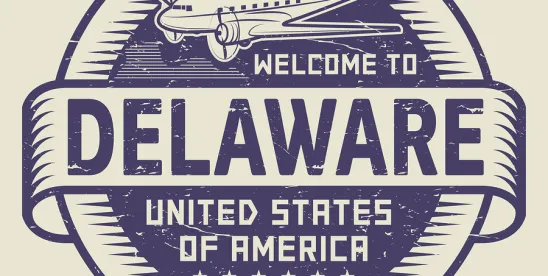In In Re Coty Inc. Stockholder Litigation, C.A. No. 2019-0336-AGB (Del. Ch. Aug. 17, 2020), the Delaware Court of Chancery (the “Court”) denied a Rule 12(b)(6) motion to dismiss claims brought by stockholders (the “Plaintiffs”) of Coty Inc. (“Coty”) against its directors and de facto controlling stockholder, JAB Holding Company S.à.r.l. and its affiliates (“JAB”), over JAB’s 2019 partial tender offer, whereby it increased its ownership stake in Coty from 40% to 60%. The Plaintiffs alleged that JAB opportunistically timed and priced the tender offer so that it undervalued Coty and structured the tender offer in a coercive manner.
As discussed below, in preparation for the tender offer, JAB entered into a stockholders’ agreement with Coty (the “Stockholders’ Agreement”) requiring, in part, that (i) two new independent directors be added to Coty’s board of directors (the “Board”), and (ii) at least four independent directors serve on the board of directors of Coty. The consolidated complaint contained four claims. The first two claims asserted that the Board and JAB breached their fiduciary duties for initiating and approving the tender offer at an unfair price and through an unfair process. The other two claims were brought derivatively on behalf of Coty and asserted that JAB breached the Stockholders’ Agreement by failing to ensure the presence of independent directors on the Board and for causing, and failing to remedy, ongoing breaches of the Stockholders’ Agreement.
On February 12, 2019, JAB informed the Board that it would commence a tender offer to acquire up to 150 million Coty shares for $11.65 per share (the “JAB Proposal”). The JAB Proposal was conditioned on “the independent directors of the Company” approving and recommending the tender offer to Coty’s shareholders. At the time of the tender offer Coty had nine directors, four of which served in fiduciary roles at JAB entities (the “JAB Directors”) and five individual directors (the “Individual Directors”). All of the Individual Directors had ties to JAB, including Coty’s CEO, Pierre Laubies, who had previously served as CEO of a JAB affiliate. Laubies was also the only Individual Director with a management position at Coty.
The Board appointed a special committee (the “Special Committee”) made up of all of the Individual Directors, except Laubies, to review the JAB Proposal. According to the JAB Proposal, the tender offer represented “a premium of approximately 38% to the 90-day volume-weighted average share price;” however, the JAB Proposal represented a considerable discount compared to Coty’s 52-week high of $21.53 per share. The Special Committee sought an increase in the tender offer price but JAB would not engage in monetary negotiations. JAB did agree to two nonmonetary changes to the tender offer (i) raising the minimum share tender condition so that if the tender offer were consummated, JAB would own at least 50.1% of the outstanding shares; and (ii) entering into a stockholders’ agreement. The Special Committee recommended that the Board approve the Stockholders’ Agreement and recommend the JAB Proposal to Coty’s stockholders.
On March 17, 2019, the Board voted to accept the Special Committee’s recommendation, with the JAB Directors recusing themselves from the vote. Coty and JAB then entered into the Stockholders’ Agreement, which required Coty to cause the election of at least four directors that were “independent from JAB” and two new independent directors by September 30, 2019 (the “Independent Director Representation”). On March 18, 2019, Coty filed its Schedule 14-D Recommendation Statement, which stated that, other than the JAB Directors, Coty was not aware of any actual or potential material conflicts of interest between any of Coty’s executives and directors, including the Special Committee, and Coty.
By the time the tender offer expired on April 25, 2019, more than 336 million shares were tendered to JAB, representing approximately 75% of Coty’s publicly-owned shares. JAB accepted the maximum of 150 million shares for a total purchase price of approximately $1.75 billion. In the weeks that followed the tender offer, Coty management resolved a supply chain issue and previewed a new strategic plan. By May 17, 2019, Coty’s stock price had increased by 25%. In September 2019, three new directors were added to the Board. All three of the new directors had strong ties to JAB.
The Plaintiffs alleged that the Board breached its fiduciary duties by failing to disclose the Special Committee’s conflicts of interest and that JAB breached its fiduciary duties as a controlling stockholder by initiating a coercive tender offer. Additionally Plaintiffs brought derivative claims for breaches of the Stockholders’ Agreement. All defendants moved to dismiss the complaints for failure to state a claim. The Court addressed each of the Plaintiffs’ four claims as follows:
First, Coty’s CEO, Laubies, argued that the Court should dismiss the breach of fiduciary duty claims against him because Coty’s certificate of incorporation exculpates directors from breaches of the duty of care under Section 102(b)(7) of the Delaware General Corporation Law. However, the Court noted that in In re Cornerstone Therapeutics Inc, Stockholder Litigation, 115 A.3d 17730 (Del. 2015), the Delaware Supreme Court established that a director is not protected from liability under Section 102(b)(7) if there are allegations that support a rational inference the director “acted to advance the self-interest of an interested party from whom [the director] could not be presumed to act independently.” Based on the facts alleged, the Court found that it was reasonably conceivable Laubies acted to advance JAB’s interest in the tender offer because Laubies (i) voted to approve the Stockholders’ Agreement and recommended that stockholders sell their shares to JAB, (ii) ensured that the Special Committee and its financial advisor used “understated” financial projections, and (iii) failed to provide clarity on Coty’s strategic plan before the tender offer. The Court denied Laubies’ motion to dismiss.
Second, relying on In re Tri-Star Pictures, Inc., 1995 WL 106520 (Del. Ch. Mar. 9, 1995), the JAB Directors argued that the breach of fiduciary duty claims against them should be dismissed because they abstained from recommending the tender offer to the Coty stockholders. The Court explained that the abstention doctrine absolves directors of liability for board decisions in which they played no role. The Court, relying on Voigt v. Metcalf, 2020 WL 614999 (Del. Ch. Feb. 10, 2020),stated that other scenarios could preclude applying the abstention principle and that the factual nuances underlying the Tri-Star rule often necessitate the development of a discovery record before the rule can be applied. Based on the facts alleged, the Court found it was reasonably conceivable that the JAB Directors were involved in the process of approving the tender offer because the JAB Directors (i) failed to disclose their relationships with the Special Committee, which led to improperly describing the Special Committee as independent in Coty’s Schedule 14-D Recommendation Statement, and (ii) participated in board meetings about the tender offer. The Court further stated that, based on the facts, it was reasonably conceivable that the JAB Directors did not totally abstain from the process by which the tender offer was approved. The Court denied the JAB Directors’ motion to dismiss.
Next, counts III and IV of the complaint were derivative claims for breaches of the Stockholders’ Agreement. Count III asserted that JAB breached the Independent Director Representation because Coty had no independent directors. Count IV asserted the Coty directors breached their fiduciary duties by causing and failing to remedy the Company’s breaches of the Stockholders’ Agreement. In seeking to dismiss count III, the defendants argued that there was no breach of the Independent Director Representation because the Stockholders’ Agreement defined the Individual Directors as “Independent Directors,” reflecting the parties’ intent to treat such directors as “disinterested.” The Plaintiffs contend that this treatment of the Individual Directors was for the sole purpose of protecting the formation of the Stockholders’ Agreement on the date the agreement was entered into, and was not intended to apply on a going forward basis to determine director independence after the date of the Stockholders’ Agreement. The Court found that the Plaintiff’s offered a reasonable interpretation of the Independent Director Representation that accorded with the plain language of the Stockholder’s Agreement, and denied the motion to dismiss count III. In seeking to dismiss count IV, the Individual Directors argued that they acted in good faith on the belief that the Independent Director Representation applied on a going forward basis. The Court found that the facts alleged supported an unchallenged claim for breach of fiduciary duty against the Individual Directors because it was reasonably conceivable that the Individual Directors knowingly caused Coty to breach the Stockholders’ Agreement in order to retain their positions and remain in JAB’s good graces. The JAB Directors plus Laubies sought to dismiss count IV by arguing that they did not have the authority to enforce the Independent Director Representation. The Court found that the JAB Directors and Laubies did have the authority to enforce the Independent Director Representation under the Stockholders’ Agreement and could have a role as fiduciaries to remedy a breach of the Stockholders’ Agreement.
Lastly, JAB claimed that the stockholders who continued to hold Coty shares after the tender offer (the “Remaining Stockholders”) were no worse off after JAB gained majority ownership of Coty because JAB was effectively a controlling stockholder before the tender offer. The Court acknowledged this principle of law, but, citing Paramount Communications Inc. v. QVC Network Inc., 637 A.2d 34 (Del. 1994), noted that when a majority of a corporation’s voting shares are acquired by a minority controller, there is, among other factors, a significant diminution in the voting power of the remaining stockholders that must be compensated by a control premium. The Court found that it was reasonably conceivable that the Remaining Stockholders suffered harm as a result of the tender offer because the Remaining Stockholders (i) “no longer have any expectation of receiving a control premium for their shares in a future buyout”; (ii) face the risk of an unfair squeeze-out that JAB could effect by written consent; (iii) lost the ability to meaningfully exercise their voting franchise; (iv) lack any “say on basic issues pertaining to the Company,” and are thus “subject to the whim and caprice of JAB”; and (v) are negatively impacted by JAB’s new supermajority control which “has suppressed and will continue to suppress the value” of the stock price.
In sum, the Court denied all of the defendants’ motions to dismiss because the Plaintiffs had pled facts sufficient to reasonably support their claims.





 />i
/>i

